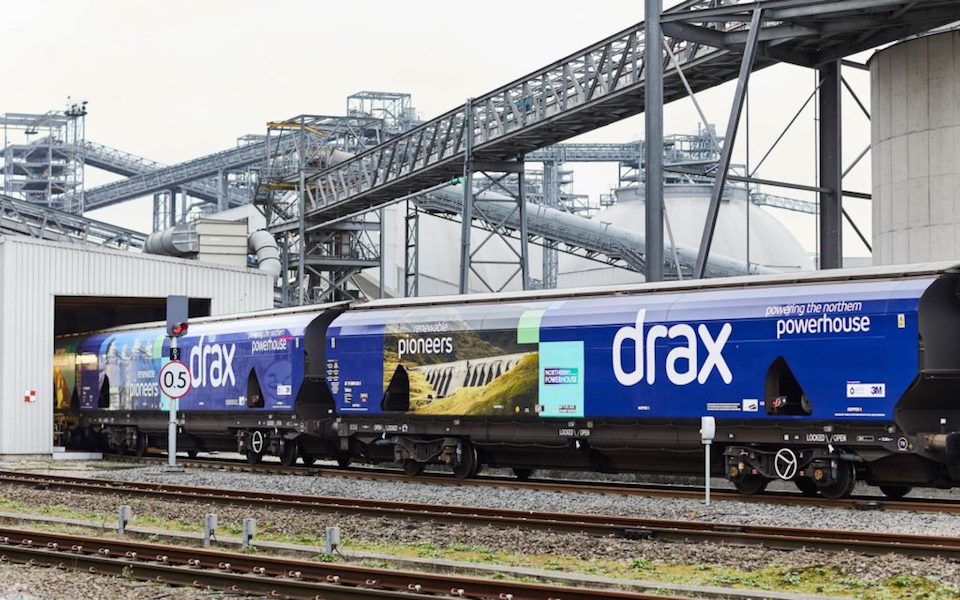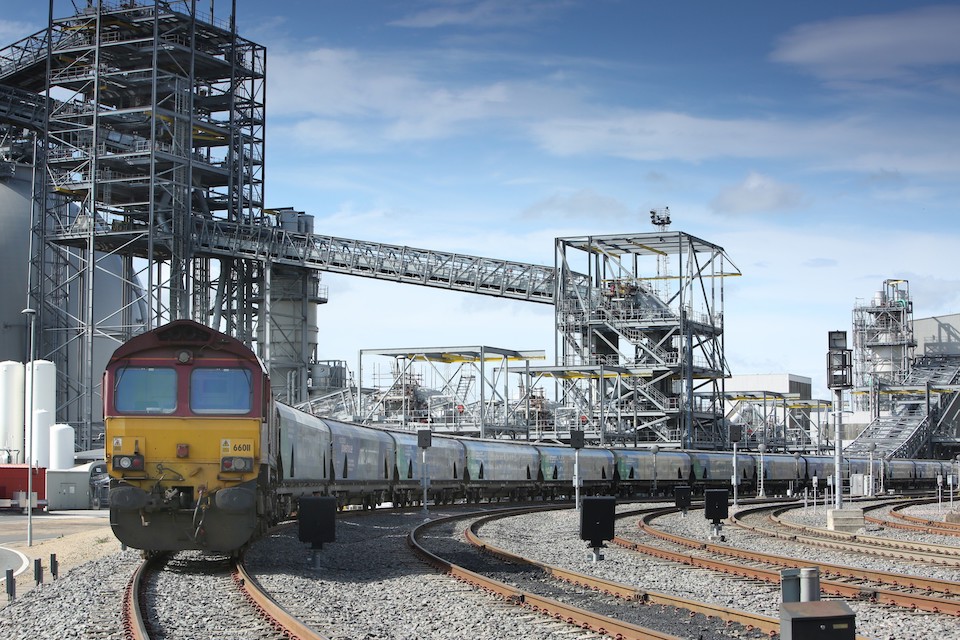With a fleet of new wagons, Drax remains Britain’s ‘biomassive’

British manufacturer WH Davis is supplying a fleet of thirty new biomass wagons for the Drax power station complex. The former coal-fired generating station, which now defines itself as the United Kingdom’s largest renewable electricity generator, has announced its investment in 30 new rail wagons. The bespoke rolling stock will go into dedicated service, delivering biomass to the North Yorkshire power station complex, powering approximately four million homes with renewable energy.
The innovative high-capacity wagons, an enhancement of Drax’s existing fleet of 225 rail wagons, were designed by Lloyd’s Register Rail (now Ricardo Rail) and WH Davis. The British company is the last remaining domestic goods rolling stock manufacturer. These wagons, the first of their kind globally, have helped transform the late-sixties-designed Drax Power Station from a coal-fired behemoth into Europe’s most extensive decarbonisation project. It claims to be the UK’s largest single-site renewable power generator. Drax is also among the busiest single-customer rail freight destinations.
Increasing carrying capacity and reducing journeys
WD Davis is not just the last man standing on the British freight scene. It is a centre of excellence in rolling stock innovation. The company has made a reputation for repurposing and re-engineering otherwise redundant rolling stock – especially nearly new coal hoppers. The new wagons exemplify the best of the company. The improved design increases biomass transportation efficiency by thirty per cent, with each wagon carrying a payload of 71.6 tonnes of biomass. The cargo is effectively woodchip pellets, which require dry conveyance and a much larger volume than heavier coal. Increasing the carrying capacity over similar designs reduces the required rail journeys and significantly cuts supply chain emissions.

“Our biomass trains deliver up to 30,000 tonnes of biomass to the power station each day”, said Bruce Heppenstall, Drax Plant Director. “It is therefore vital that we have a robust supply chain. Investing in these new wagons will further increase our resilience and cut carbon emissions on our Port of Tyne [Newcastle] to Drax rail route by more than a quarter whilst continuing to support thousands of jobs across the North of England, including at WH Davis and [sister company] Davis Wagon Services’ facilities.”
British companies leading the world
The first batch of 30 new wagons is expected to be operational early next year, servicing the route from the Port of Tyne to Drax. “Drax’s confidence in us allows this to continue and develop”, said Jonathan Hamer, Managing Director of WH Davis. “These additional thirty new biomass wagons reflect the strength and depth of the Davis Group, including Davis Wagon Services, to provide a full turnkey solution for customers from manufacture to maintenance. This contract builds on the previous supply to Drax for its unique biomass wagon fleet requirements. As the only rail freight manufacturer in the UK, we need to win such contracts to ensure the continuity of skills within our locally based workforce. Drax’s confidence in us allows this to continue and develop.”

Drax’s biomass, sourced from North America and Europe, arrives at ports on both the east and west coasts of Great Britain. The decision to transport biomass by rail rather than road underscores Drax’s commitment to efficiency and sustainability. The parliamentary representative for the Shirebrook area, where WH Davis has their manufacturing plant, is Mark Fletcher, Member of Parliament for the Bolsover constituency. Fletcher praised the investment as a positive step toward strengthening the UK’s energy security and supporting local skilled manufacturing jobs. He commended the wagons as a testament to British companies leading the world in innovation and engineering. Well, he would, wouldn’t he – but, in this case, he’s entirely justified.




